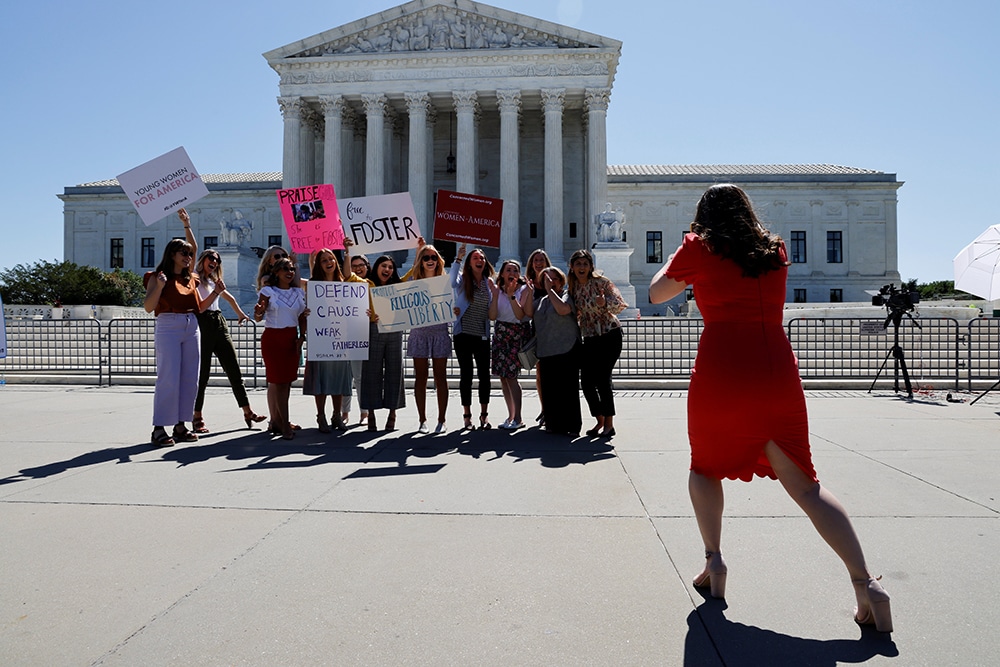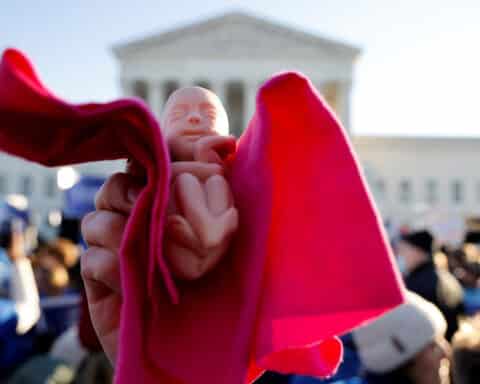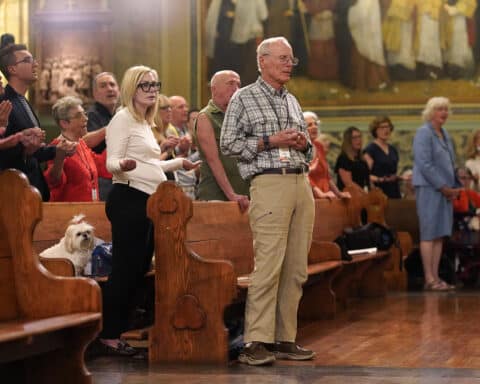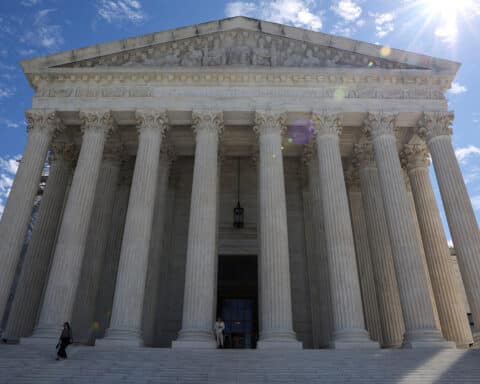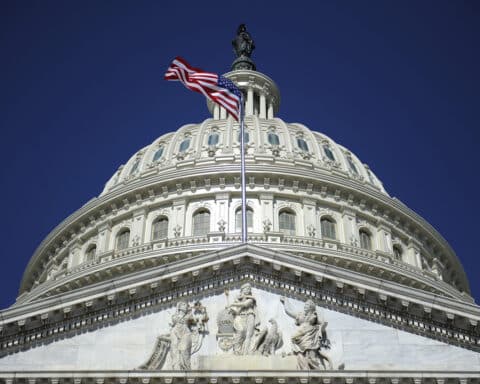In a major religious liberty ruling that gives religious groups timely new protection against state coercion, the Supreme Court held unanimously Thursday that the government cannot penalize a Catholic foster care agency for refusing to place foster children with same-sex couples.
Beyond the June 17 decision’s immediate impact on foster care and adoption, the closely watched case provides insulation for religious institutions against the Biden administration’s drive to expand gay and transgender entitlements, as well as against a further extension of LGBTQ rights under legislation now pending in Congress.
The court’s majority opinion was written by Chief Justice John Roberts, joined by Justices Stephen Breyer, Sonia Sotomayor, Elena Kagan, Brett Kavanaugh and Amy Coney Barrett. All of the court’s members concurred in the result, but several justices wrote separate concurring opinions of their own.
The dispute at the heart of the case (Fulton v. City of Philadelphia) began when the city forced Catholic Social Services of the Philadelphia archdiocese out of the foster care field because it refused to abandon its policy of not placing foster children with same-sex couples. The agency had been involved in foster care for more than a century and at the time of the city’s action was responsible for 120 foster children.
A district court upheld the city’s action, and the 3rd Circuit U.S. Court of Appeals agreed in a decision that the archdiocese appealed to the Supreme Court.
In his opinion, Chief Justice Roberts wrote as follows:
“As Philadelphia acknowledges, CSS has ‘long been a point of light in the city’s foster-care system.’ CSS seeks only an accommodation that will allow it to continue serving the children of Philadelphia in a manner consistent with its religious beliefs; it does not seek to impose those beliefs on anyone else.
“The refusal of Philadelphia to contract with CSS for the provision of foster care services unless it agrees to certify same-sex couples as foster parents cannot survive strict scrutiny, and violates the First Amendment.”
The court remanded the case to the 3rd Circuit Court for “further proceedings consistent with” its ruling.
In its appeal to the Supreme Court, Catholic Social Services argued that the city’s action and the 3rd Circuit Court’s ruling upholding it violated both the free exercise clause and the establishment clause of the First Amendment, as well as free speech. It also pointed to the national implications of the case for other church-sponsored foster care and adoption programs now under fire on the same grounds.
A statement earlier this year from the U.S. Conference of Catholic Bishops said the city’s policy reflected “a hollowed-out pluralism that permits people of faith to preach but not to practice.”
The USCCB joined the Pennsylvania Catholic Conference in a friend of the court brief — one of many submitted by religious groups — saying the case raised the question of whether religious organizations “can continue to provide critical human services, as organized communities of religious adherents have done for centuries, without surrendering their religious beliefs.”
Prominent in the background of the Fulton case is a long-running controversy over an earlier Supreme Court ruling on religious free exercise that many religious groups would be pleased to see either revised or scrapped.
In that case, Employment Division v. Smith, the court ruled in 1990 in an opinion written by Justice Antonin Scalia that government restrictions on the free exercise of religion are allowable if they apply equally to all groups, not just religious ones, and do not arise from covert hostility toward religion.
Critics of the Smith doctrine concede that some restrictions on free exercise are justified for the sake of a pressing public interest, such as protecting people’s health during an emergency like the coronavirus pandemic. But, they say, free exercise of religion is a constitutionally protected right guaranteed by the First Amendment, and as such should enjoy a comparably higher level of protection.
Chief Justice Roberts’ opinion left the Smith doctrine standing, but held that Philadelphia’s action in the Fulton case failed to meet the requirement that it “not burden religion” without a compelling reason for doing so. Noting that the city’s own rules allow for exceptions to the non-discrimination requirement, he wrote: “The city offers no compelling reason why it has a particular interest in denying an exemption to CSS while making them available to others.”
Although it does not refer to them directly, the court’s decision provides potentially significant protection for religious bodies threatened by President Biden’s January order expanding LGBTQ rights.
Taking as its starting point a Supreme Court decision last year (Bostock v. Clayton County) that the existing federal ban on sex-based job discrimination covers gay and transgender persons, the order extended this to include other areas of federal involvement such as education and housing. Heads of numerous federal agencies are now acting to carry out that mandate or preparing to do so.
The Equality Act carries this reasoning of Biden’s order still further. Among other things, it would guarantee transgender persons access to restrooms and locker rooms of their preference, penalize physicians who decline on professional grounds to perform sex-reassignment procedures, and override the Religious Freedom Restoration Act protecting the First Amendment rights of religious groups.
In a statement opposing the legislation, the U.S. Conference of Catholic Bishops charged that “instead of respecting differences in beliefs about marriage and sexuality, the Equality Act would discriminate against people of faith,” including both individuals and church-related groups.
Russell Shaw is a contributing editor for Our Sunday Visitor.

